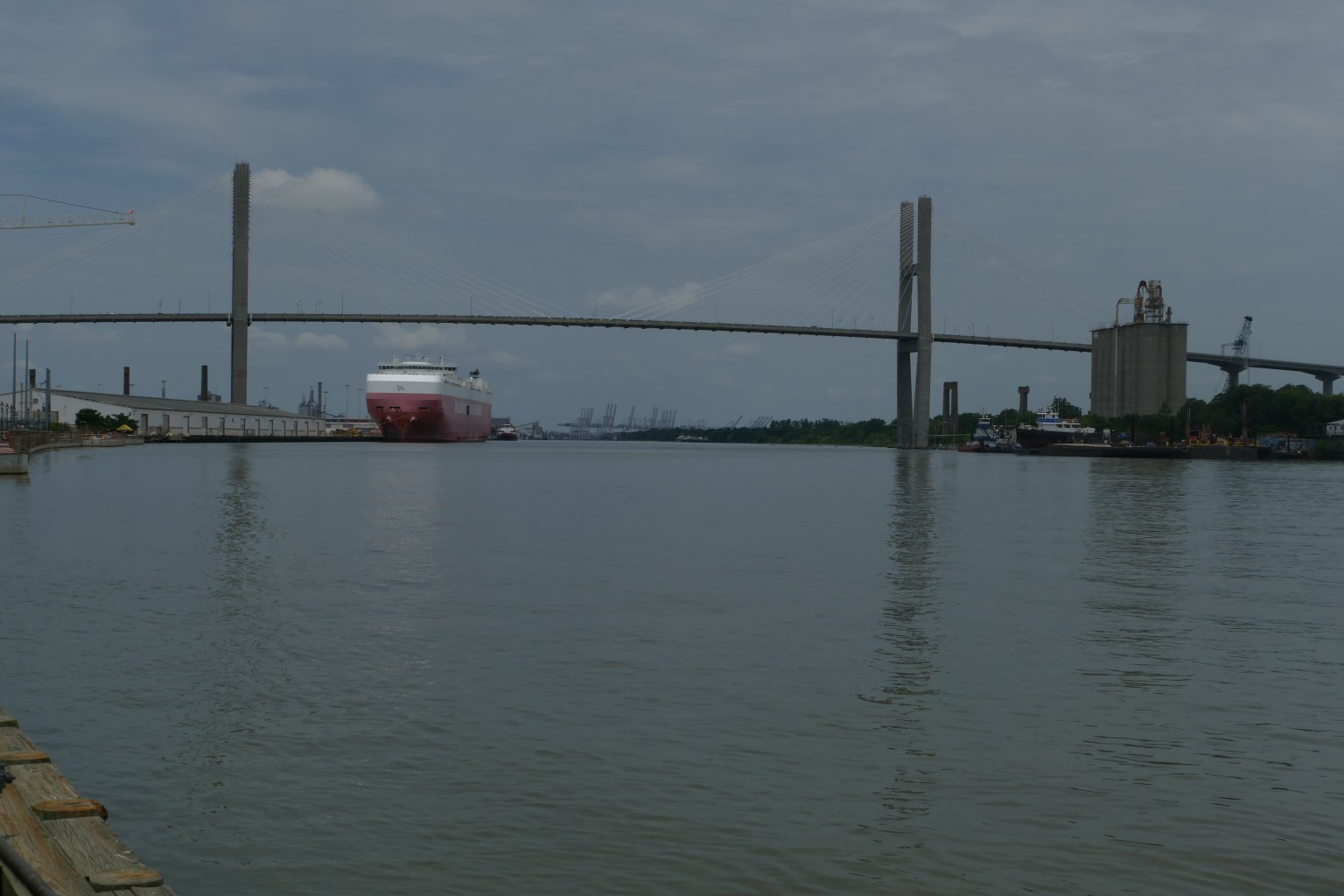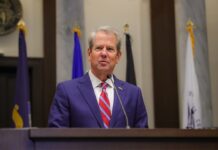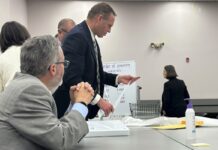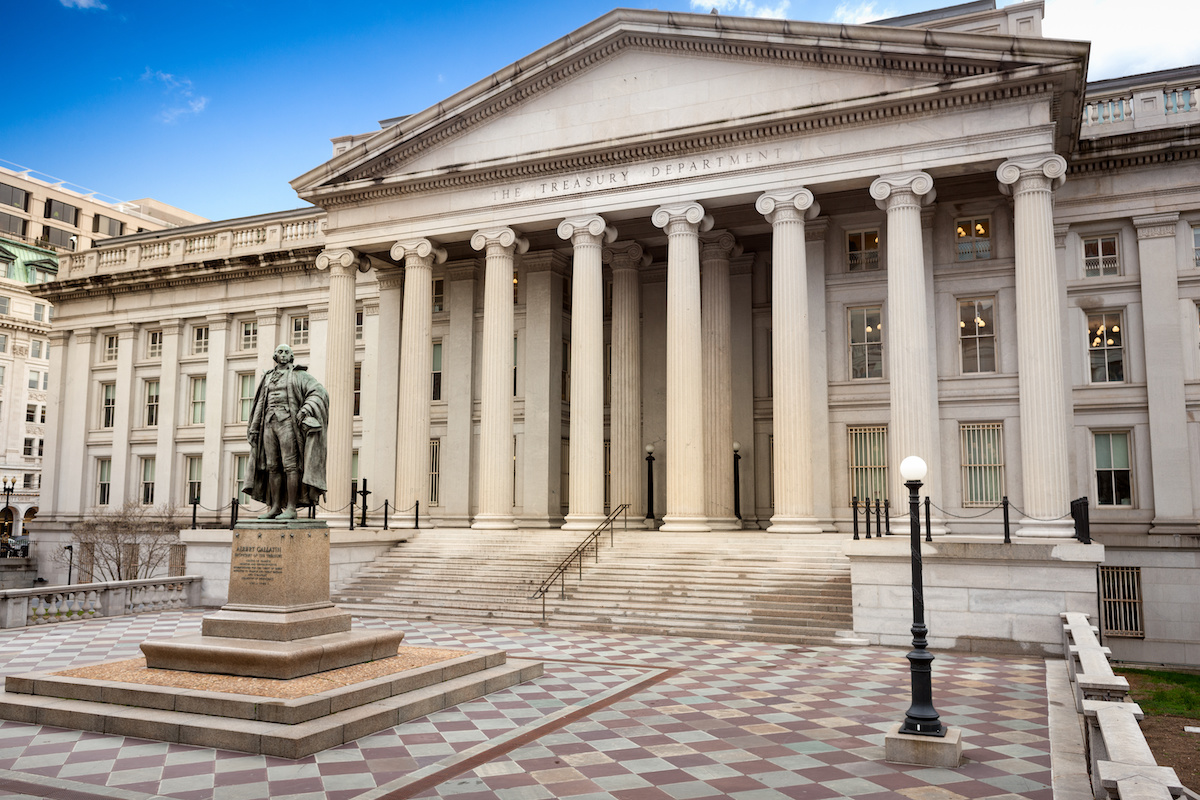
President Donald Trump pointed to two Georgia projects – the expansion of the Savannah Harbor and a dedicated truck lane on Interstate 75 – as examples of the undue burden created by the current federal review process.
But advocates noted that the truck lane project just began the review process and that the Savannah Harbor project is seen as an example of how the Nixon-era National Environmental Policy Act can improve a project.
“If any project ever needed NEPA analysis, it certainly would be the Georgia DOT’s boondoggle truck-only lane project,” said Mark Woodall, legislative chair for the Georgia chapter of the Sierra Club, who criticized Trump’s proposal for “gutting” a law seen as the country’s bedrock environmental protection.
Trump made the announcement Wednesday afternoon at the UPS Hapeville Airport Hub in Atlanta with a UPS truck as his backdrop. He invited a UPS driver and executive on stage to speak and named UPS as a benefactor of the truck lane project.
The president came to Atlanta as polls show a tight race between him and former Vice President Joe Biden here in Georgia. He said his proposal would dramatically cut the review process for major infrastructure projects down to two years or less. He said his goal is to decide the fate of projects within a year and “modernize” the federal environmental review process.
Trump said the I-75 truck lane project would be one of the first to benefit.
“You have to get permits,” Trump said Wednesday. “We want safety. We want to be totally involved with the environment. We want our environment to be better than it would be the other way – the long way.
“But you’re going to get your answers quickly,” he added. “One way or the other, you’re going to get those answers very quickly. And if the answer is a big, beautiful yes, you’re going to start construction immediately. You’re not going to wait around for 10, 12 and 20 years.”
He said the outcome would still be decided “after study, but the studies are going to go quickly and they’re going to go simultaneously.” That means all involved federal agencies would have weigh in at the same time.
The rule would also reduce consideration of an infrastructure project’s impact on climate change, ending the need to assess how a project contributes to the cumulative effect on the environment.
Georgia’s transportation commissioner, Russell McMurry, called the change “another environmental process improvement” that will make life much easier for departments of transportation across the country without, he said, foregoing safety.
Trump said the Savannah Harbor project, which entails deepening the channel to accommodate larger shipping vessels, “faced 20 years of unnecessary delays.”
The Natural Resources Defense Council, though, cites the project as a success story for NEPA, citing the original project’s potential impact on tidal freshwater wetlands, the federally protected short-nose sturgeon and local sources of drinking water.
Instead, the council says an agreement was reached that directed funding to wetland protection and restoration efforts that benefit the Savannah River as well as an initiative to restore some river bend “oxbows” cut off by earlier federal projects, among other environmental projects benefiting the region. The expansion project is currently underway.
Critics of Trump’s proposal worry it could have a disproportionate impact on minority communities and other marginalized communities that can use NEPA to have a say in major projects like highways and pipelines.
“The challenge is that Donald Trump does not believe in the reality of racial disparity, particularly in environmental issues,” Stacey Abrams, who is a former Democratic gubernatorial candidate who narrowly lost to Gov. Brian Kemp in 2018, said in a virtual press conference Wednesday.
“And we know that his disregard and disdain for the challenges that face the underprivileged, that face racial minorities and those who face the challenge of climate inaction are going to be ignored by his processes,” she said.
The Southern Environmental Law Center said Wednesday that it is preparing to sue the Trump administration on behalf of 16 conservation groups. The center says the change would make it more difficult for communities to offer alternatives to major projects permanently affecting them.
“This is a blatant and transparent effort from the Trump administration to further silence communities that are not as well connected, not as wealthy, not as valuable to the White House as others,” Kym Hunter, an SELC senior attorney who is heading the organization’s defense of NEPA, said in a statement.
“And the fact that it is happening now, when so many in our communities are crying out for equity and fairness, is particularly appalling,” she said.
Georgia Recorder reporter Ross Williams contributed to this report







